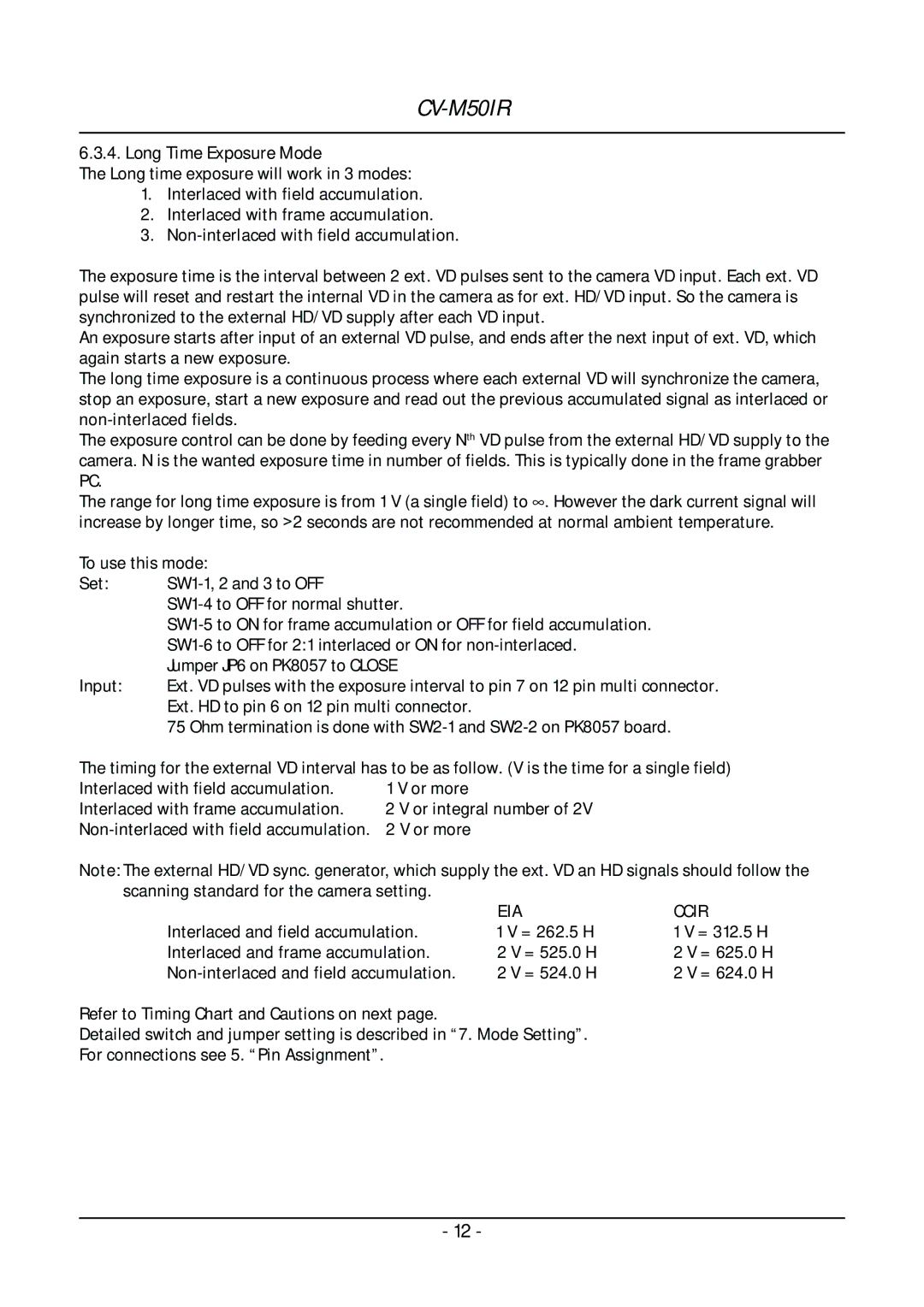
CV-M50IR
6.3.4. Long Time Exposure Mode
The Long time exposure will work in 3 modes:
1.Interlaced with field accumulation.
2.Interlaced with frame accumulation.
3.
The exposure time is the interval between 2 ext. VD pulses sent to the camera VD input. Each ext. VD pulse will reset and restart the internal VD in the camera as for ext. HD/VD input. So the camera is synchronized to the external HD/VD supply after each VD input.
An exposure starts after input of an external VD pulse, and ends after the next input of ext. VD, which again starts a new exposure.
The long time exposure is a continuous process where each external VD will synchronize the camera, stop an exposure, start a new exposure and read out the previous accumulated signal as interlaced or
The exposure control can be done by feeding every Nth VD pulse from the external HD/VD supply to the camera. N is the wanted exposure time in number of fields. This is typically done in the frame grabber PC.
The range for long time exposure is from 1 V (a single field) to ∞. However the dark current signal will increase by longer time, so >2 seconds are not recommended at normal ambient temperature.
To use this mode:
Set: | |
| |
| |
| |
| Jumper JP6 on PK8057 to CLOSE |
Input: | Ext. VD pulses with the exposure interval to pin 7 on 12 pin multi connector. |
| Ext. HD to pin 6 on 12 pin multi connector. |
| 75 Ohm termination is done with |
The timing for the external VD interval has to be as follow. (V is the time for a single field)
Interlaced with field accumulation. | 1 V or more |
Interlaced with frame accumulation. | 2 V or integral number of 2V |
2 V or more |
Note:The external HD/VD sync. generator, which supply the ext. VD an HD signals should follow the scanning standard for the camera setting.
| EIA | CCIR |
Interlaced and field accumulation. | 1 V = 262.5 H | 1 V = 312.5 H |
Interlaced and frame accumulation. | 2 V = 525.0 H | 2 V = 625.0 H |
2 V = 524.0 H | 2 V = 624.0 H |
Refer to Timing Chart and Cautions on next page.
Detailed switch and jumper setting is described in “7. Mode Setting”.
For connections see 5. “Pin Assignment”.
- 12 -
